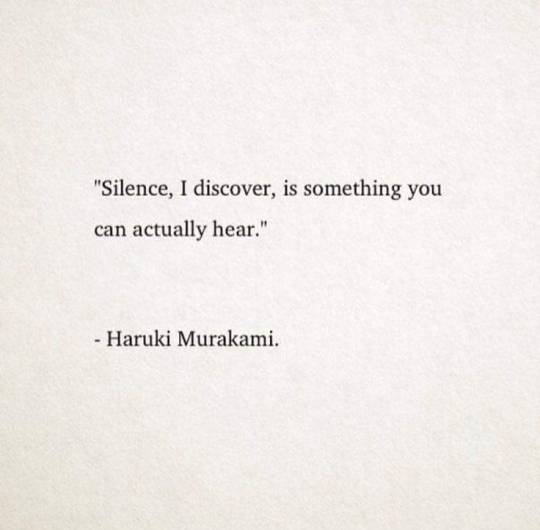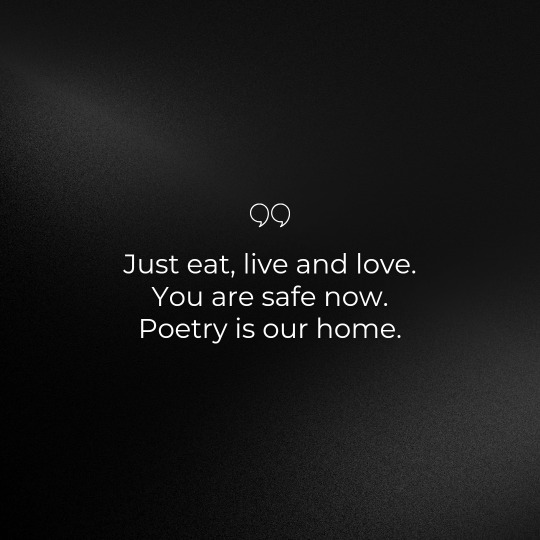#Aphorisms
Text

- Haruki Murakami
#aesthetic#dark academia#poets on tumblr#book quote#poetry#quotes#art#soft aesthetic#poem#light academia#traditional art#haruki murakami#aphorisms
28 notes
·
View notes
Text

#222#my writing#writers#aphorisms#poems#painting#tumblarians#punk#111#friedrich nietzsche#nietzche#poetic#philosophy#philosoraptor#the tortured poets department#poesia
22 notes
·
View notes
Text
"If you want to get to the peak, you ought to climb without giving it too much thought"
- Friedrich Nietzsche,
'The Gay Science'
#philosophy#nietzsche#friedrich nietzsche#quotes#aphorisms#awareness#focus#ascension#high country of the mind#enlightenment#romanticism#philosophical quotes#the gay science
46 notes
·
View notes
Text
Whoever fights monsters should see to it that, in the process, he doesn't become a monster. If you gaze long enough into an abyss, the abyss will gaze back into you.
- Friedrich Nietzsche
#books#reading#friedrich nietzsche#english literature#quotes#literature#bookworm#bookblr#beyond good and evil#aphorisms
31 notes
·
View notes
Text
✨ “Science, when it finishes explaining everything, but being unable to explain the consciousness that creates it, will not have explained anything.”
Nicolás Gómez Dávila
12 notes
·
View notes
Text
“Dieting,” and, in Great Britain, “slimming,” are trivializing words for what is in fact self-inflicted semistarvation.
— Naomi Wolf (1990) The Beauty Myth
#aphorisms#anti diet culture#naomi wolf#the beauty myth#radblr#radfem#radical feminism#radfem safe#radical feminist safe
10 notes
·
View notes
Text
“Most people believe most of the things they believe only because they believe that most people believe them.”
— Mokokoma Mokhonoana (via staving)
11 notes
·
View notes
Text

20 notes
·
View notes
Text

7 notes
·
View notes
Text
reflections
On the way to my mother’s mother’s warm
cabin built on the lake I spent much of my youth,
I’d kick my feet and step on mama’s heart
when I would miss this boyfriend that stood too tall
over my head like a skyscraper, blocking the sun;
back when I thought the coolness was pleasant.
Before I knew that his 3.7 years above me would overshadow
my own kindness, that has been passed down by the sweet hands
of my mother, who showed me the sun and encouraged me
to savor the energy it gave. I would pout at the opportunity
to not spend this one weekend with the same person I spent
every week with. She told me distance makes the heart grow
fonder, so I would pour my tears into i miss you texts.
The distance gave me time, so I searched for all my reflections—
in the water evolved by the ripples our sweet swaying feet
spread, in the mirror seeing my skin glow
from the memories we were creating each day, in the spoon
that sparkles on its way to cradle the love of chocolate
ice cream passed down through all my mothers—I
saw in my heart the warmth of all the women before me.
Distance made my heart grow fonder, for all the feminine
love that brought me closer to myself. Distance told
me that I didn’t miss him, but that I would miss
who I’d become without him.
Now, we go back to float through the lake on the pontoon
and I bask in the sunlight that the women in my life shine on me.
After seeing all of my sweet reflections, I now
feel the joy of taking my time to notice the way the water
lets my sunray hair flow, the sand that exfoliates my rough feet,
the homes of the spiders, carefully crafted to glimmer,
just like the water that splashes up from our banter on the boat.
7 notes
·
View notes
Text

My daddy was a bank robber
But he never hurt nobody
He just loved to live that way
And he loved to steal your money
11 notes
·
View notes
Text

- Anonymous
#aesthetic#dark academia#poets on tumblr#book quote#poetry#quotes#art#soft aesthetic#poem#light academia#aphorisms#emily dickinson#chaotic academia#traditional art
25 notes
·
View notes
Text
In another universe everything turned out to be okay. You’re coming home from work and I am cooking your favorite meal for you. You kiss my forehead and I tell you that you’re the best husband in the whole wide world. In another universe we live the life we deserved to live
#222#my writing#writers#aphorisms#111#poems#tumblarians#love poem#the tortured poets department#poem#sad poem#poets on tumblr#original poem#poesia#poetry#poetic#writers and poets#poems and quotes#dead poets society#in another universe#in another life#in another reality#in another world#writers on tumblr#writerscommunity#writing#writer things#thoughts#overthinking#heartache
13 notes
·
View notes
Text

#grunge#soft grunge#90s#photography#vintage#cottage core#film camera#vintage vibes#pastel#vintage camera#vintage aesthetic#grunge aesthetic#wall decor#wall art#bob marley#quotes#philosophy#aphorisms#positibevibes
179 notes
·
View notes
Text
To write is to proclaim that something is wrong in one’s relationship with being.
Notebooks
Emil Cioran
#cioran#notebooks#translating this long ass book#french#romanian#literature#aphorisms#neitzsche#philosophy#theory#theology
51 notes
·
View notes
Text
"The Duality of Beauty and Decay: Oscar Wilde's Masterpiece, The Picture of Dorian Gray"

Oscar Wilde's "The Picture of Dorian Gray" unfolds as a decadent tapestry woven with the threads of beauty, morality, and the consequences of unchecked hedonism. Published in 1890, this novel is a timeless exploration of the corrupting influence of aestheticism and the intricate dance between art and morality. The title alone evokes a sense of mystery and allure, foreshadowing the dark and enigmatic journey that readers are about to embark upon.
At the heart of the narrative is the titular character, Dorian Gray, a young and exceptionally handsome man whose portrait, painted by the talented artist Basil Hallward, captures the essence of his youth and beauty. Dorian becomes infatuated with the idea of eternal youth and makes a Faustian pact—his portrait will age and bear the consequences of his immoral actions, while he remains untouched by the ravages of time.
The novel explores the concept of aestheticism, a philosophy championed by Wilde himself, which emphasizes the pursuit of beauty and the rejection of conventional morality. Dorian Gray, initially an emblem of aesthetic perfection, descends into a life of decadence, indulging in every pleasure the world has to offer without regard for the ethical ramifications. Wilde's razor-sharp wit and satirical commentary on the superficiality of society are evident as Dorian navigates the underbelly of Victorian London.
Wilde's prose is a marvel, a poetic symphony that captures the essence of his aesthetic philosophy. The novel is replete with epigrams and witticisms that showcase Wilde's keen observation of human behavior and society's obsession with appearances. The writing is both ornate and cutting, creating a delightful tension that mirrors the duality inherent in the narrative.
The characters surrounding Dorian Gray add depth to the exploration of morality and corruption. Lord Henry Wotton, a charismatic and cynical aristocrat, serves as the catalyst for Dorian's moral descent. His aphorisms and influence on Dorian encapsulate the allure of a life unfettered by societal norms. Basil Hallward, the artist who initially captures Dorian's beauty, becomes a symbol of the internal struggle between art and morality.
The narrative is enriched by the symbolic significance of the portrait itself. As Dorian's sins accumulate, the portrait undergoes a grotesque transformation, reflecting the moral decay hidden beneath the veneer of youth and beauty. The portrait becomes a haunting reminder of the consequences of a life lived without moral restraint, a visual representation of the soul's degradation.
"The Picture of Dorian Gray" is not merely a cautionary tale but a profound exploration of the human condition. Wilde challenges the superficiality of societal values, prompting readers to confront the inherent tension between aesthetic pursuits and ethical responsibilities. The novel's themes remain relevant, inviting contemporary readers to reflect on the price of unchecked desire and the pursuit of an idealized, hedonistic existence.
In conclusion, Oscar Wilde's "The Picture of Dorian Gray" stands as a literary masterpiece that transcends its Victorian origins. The novel's exploration of beauty, morality, and the consequences of decadence remains as relevant today as it was over a century ago. Wilde's unparalleled wit, coupled with the timeless relevance of the novel's themes, solidify its place in the literary canon as a work that continues to provoke thought and captivate readers with its exploration of the eternal struggle between the allure of beauty and the inevitability of moral decay.
Oscar Wilde's "The Picture of Dorian Gray" is available in Amazon in paperback 11.99$ and hardcover 19.99$ editions.
Number of pages: 188
Language: English
Rating: 10/10
Link of the book!
Review By: King's Cat
#Oscar Wilde#The Picture of Dorian Gray#Aestheticism#Morality#Hedonism#Faustian pact#Beauty#Decay#Victorian society#Duality#Decadence#Basil Hallward#Lord Henry Wotton#Wit#Satire#Epigrams#Human behavior#Superficiality#Symbolism#Aphorisms#Internal struggle#Visual representation#Soul's degradation#Cautionary tale#Ethical responsibilities#Contemporary relevance#Price of desire#Idealized existence#Hedonistic pursuit#Human condition
8 notes
·
View notes